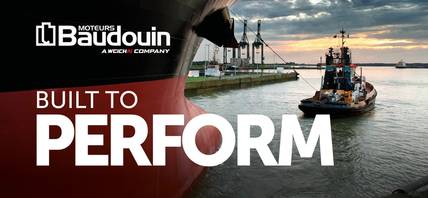The International Bunker Industry Association (IBIA) has moved quickly to dispel certain misconceptions circulating within the market concerning the circumstances under which regulations affecting shipping within the designated Sulphur Emission Control Area for the English Channel and North Sea (SECA2) will be applied.
It has been argued that, under SECA 2, which comes into force this year, Port State Control will deem to be acting ‘in good faith’ any vessel which takes on low-sulphur fuel before entering SECA 2 but which, due to the logistics of fuel changeover, continues to burn high-sulphur fuel for a period of time whilst within the SECA.
IBIA secretary-General Ian Adams says, “This argument is unfounded and misleading, and could in fact result in a vessel being considered non-compliant by Port State Control. It is important to stress that there is no provision for a vessel to be considered to be ‘acting in good faith’ in either the IMO or the relevant EU legislation, which enters force on August 11.”
It has also been suggested that the regulations contained within SECA 2 will not come into force in the UK until they have been ratified by the UK government, and that vessels will therefore be able to enter SECA 2 without low-sulphur fuel on board until such ratification has taken place. Again, Adams warns, “It would be dangerous to follow such advice. While it is true that the relevant laws are not currently on the UK statute books, it is still an offence to enter a SECA burning non-compliant fuel. And, although the UK may not be able to prosecute, a vessel which makes a planned or unscheduled voyage to another port within the SECA, Port State Control in that other port can check for compliance from the time of entry into the SECA.
“Any owners and operators who are in doubt about their responsibilities with regard to the fuel they are intending to burn within SECAs are advised to proceed with extreme caution, and certainly not on the strength of unconfirmed reports, even from seemingly credible sources. IBIA, as the voice of the bunker industry, is committed to helping shipping to clean up its act and its reputation in this regard, and advises strongly against any action which might appear expedient or attractive but which is, at best, ill-advised, and, at worst, illegal.”
Sponsored Content
Anschuetz USA: Supporting the U.S. Maritime Industry

Maritime leaders unite to tackle ocean plastic with launch of new alliance: the Maritime Association for Clean Seas

December 2025
 Read the Magazine
Read the Magazine

 Read the Magazine
Read the Magazine
This issue sponsored by:

U.S. Energy Innovation: Closing the Loop on the Carbon Lifecycle with LCO2 Transport
Subscribe for
Maritime Reporter E-News
Maritime Reporter E-News is the maritime industry's largest circulation and most authoritative ENews Service, delivered to your Email five times per week










